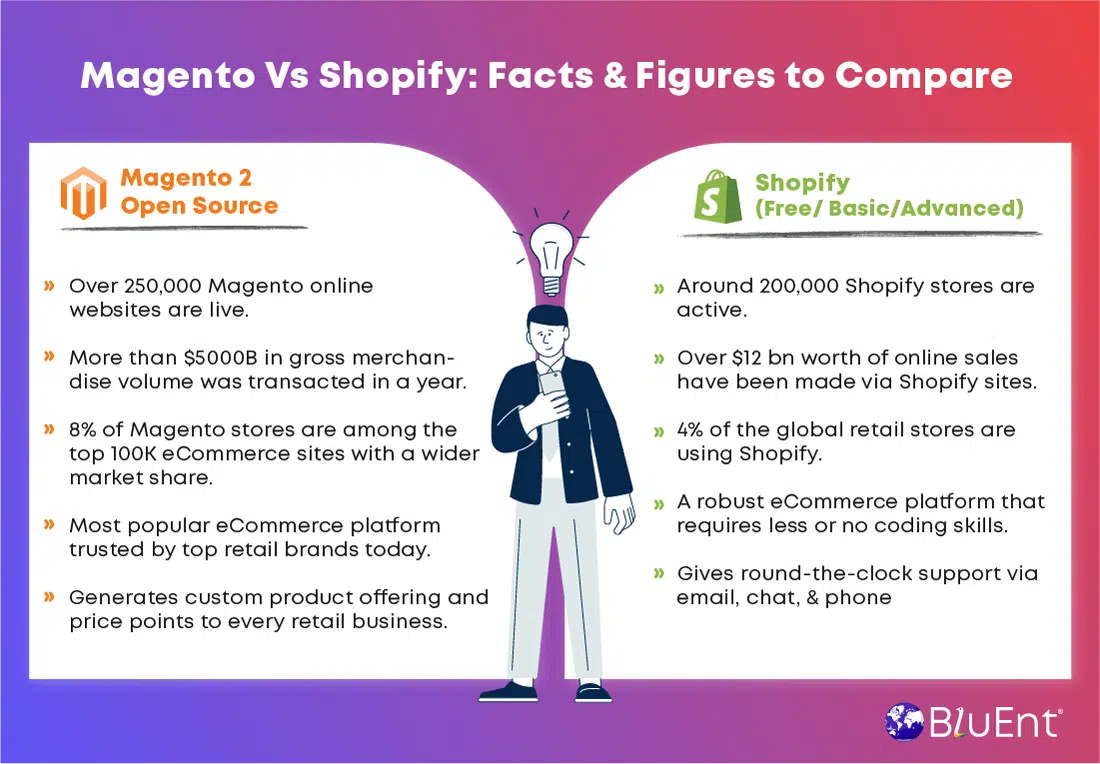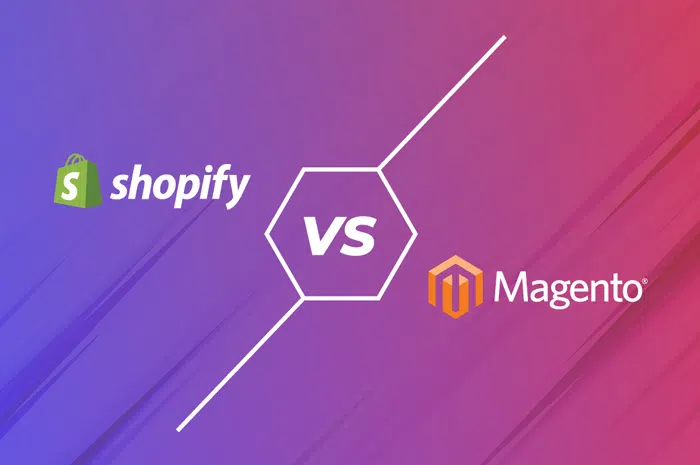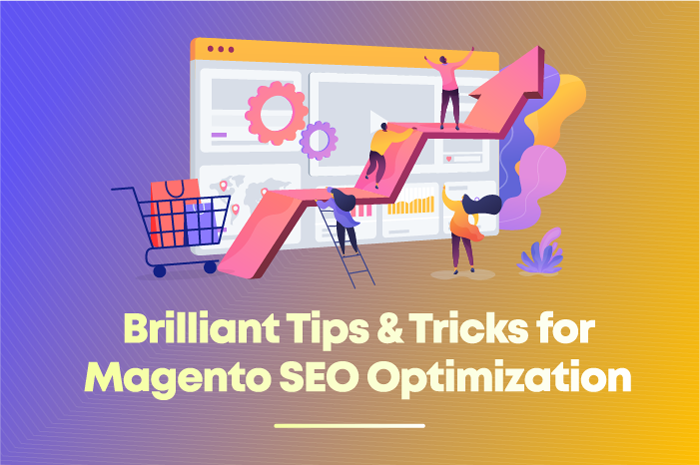This blog has been updated on - March 18, 2024
The debates on Magento vs. Shopify always invite new responses from retailers aspiring to simplify their e-commerce journeys.
Today, over 239,000 online stores use Magento (Adobe Commerce). Shopify powers nearly 4.25 million eCommerce sites, comprising over 64% of US-based sellers.
If you look at these numbers alone, Shopify seems to be a winner. However, it's not open source like Magento. Magento is free to install but demands more web hosting investments.
Like every ambitious online retailer, you should either determine which platform dominates the other based on your research or consult a trusted eCommerce web development company to get started.
As a prominent tech partner providing value-engineered solutions to global retail brands like TalkingSox and Eve & Max, the experts at BluEnt have some exciting insights to share on Magento vs Shopify.
Table of Contents:
Magento vs Shopify: A Quick Introduction
Choosing the best eCommerce platform can be challenging when you have Magento and Shopify development services as significant options.
Magento is a popular eCommerce platform that offers flexibility, scalability, and ease of use. Small retailers and enterprises hire Magento developers to customize their online shopping stores according to their business needs.
Magento is currently available as Adobe Commerce with two editions: one is Magento Commerce, and Magento Open Source is the second.
-
Magento Commerce is an all-inclusive package for online retailers who optimize their existing eCommerce sites for high sales.
-
Magento Open Source is a one-stop solution for retailers wanting to set up their online shop from scratch. It's a free and self-hosted platform to build your shopping website with unique features.
Recommended Reading:
Regarding Shopify, it's an ideal web development tool to build an eCommerce website with no coding effort.
At present, retailers consulting a reliable Shopify development company in the US have these options to choose from:
-
Shopify is the basic free version that allows businesses to optimize their online stores and boost their sales & customer experience.
-
Shopify Plus is a premium version that brings a range of features covering must-haves for starting an eCommerce business.
For value-added services, retailers should hire Shopify Plus developers for multi-channel support, payment options, web and blog support, web performance and analytics, & more.
Magento and Shopify: Pros and Cons
Magento Pros and Cons
| Magento Pros | Magento Cons |
|---|---|
| A vast community of developers is available to support emerging retailers & startups. | It is not ideal for beginners or those with limited or no coding knowledge. |
| Offers the flexibility to customize and build your store as imagined. | One needs to practice & learn using this platform to make the most of it. |
| Comprises a set of stunning themes & extensions to make your online store stand out. | The installation process needs professional expertise & may take longer than expected. |
| Free to use and open source. | Store setups may turn pricey. |
| It provides multiple extensions to choose from. |
Recommended Reading:
Shopify Pros and Cons
| Shopify Pros | Shopify Cons |
|---|---|
| It supports multi-channel selling practices on global e-commerce platforms, including Facebook, eBay, and Amazon. | It takes a transaction fee for every payment made via any mode you choose except Shopify payments. |
| Includes a range of striking and responsive themes. | Most themes in Shopify plans are premium. |
| No coding knowledge is required. | Integrating third-party apps may get difficult for some Shopify users. |
| Large community and 24/7 customer support. | |
| Allows multiple payment gateway integrations. |
Besides these, you can also consider the pros and cons of the WooCommerce plugin for developing an e-commerce platform.
Magento and Shopify: Quick Facts & Figures to Compare
In our debate on Magento vs Shopify, let's get some stats and facts to determine which is more popular.
-
The market share of Magento eCommerce is 1.72%, whereas Shopify holds around 10%, according to Statista.
-
Shopify's user base is comparatively higher than that of Magento. However, merchants using Magento run high-traffic sites. Most Shopify sites get less traffic, as per Web Technology Surveys.
-
Regarding market reach, more than 1.7 million businesses across 175 countries use Shopify, while more than 315,000 Magento sites are active across global industries.
-
According to a report, Magento users are retailers in healthcare, fashion, electronics, beauty, sports, pharmaceuticals, and other industries.

Recommended Reading:
Magento or Shopify: Which E-commerce Platform is Better?
Every eCommerce business must know the pros and cons of Magento vs. Shopify. However, other parameters must also be considered to make the proper judgment.
Let's examine some points to compare Shopify and Magento web development. This will also serve as a guide to choosing the best eCommerce platforms for your business.
Features
Both Shopify and Magento have a bundle of features for custom Shopify and Magento theme development. Let's discuss them one by one.
Magento
-
Faster checkout: This reduces the multi-step checkout process, which indicates why you are not able to convert your eCommerce web traffic into sales.
-
Payment processing: Allows easy payment gateway integration for over 300 platforms, including PayPal and Braintree.
-
Site management: Provides a multi-store management facility to monitor various stores as a single admin.
-
Analytics: Gives access to 100+ predefined reports & 9 reporting dashboards to let you create, edit, & view reports.
-
Multiple add-ons: Offers more than 4,500 unique themes & extensions to boost eCommerce user experience on your store.
Shopify
-
Shopify payments: A payment processor that makes your transactions convenient & charge-free.
-
Website blogging: To publish related blog posts and engage visitors for promotional benefits.
-
Abandoned checkout alerts: To recover incomplete checkout by notifying customers via email or text.
-
Auto taxation: To auto-update payments & tax deductions as per the country and state rates.
-
App store: Offers 7000+ apps to integrate other features such as personalized email marketing, shipping, or other functions in your store.
Ease of Use
Choosing a user-friendly technology for shopping website development will reduce coding efforts. And if we compare Magento and Shopify based on ease of use, then it's clear that:
Magento has a learning curve, as you need to write codes to build your online store. Its complexity score is higher than that of Shopify, which supports drag-and-drop functionality.
This means you must hire a web developer with Magento, as it requires technical abilities.
Hence, choosing Shopify is an excellent idea if you want to do DIY eCommerce web development.
Result: Shopify wins over Magento for being more user-friendly.
Themes & Templates
That may be why retailers hire skilled Magento or Shopify developers to get custom eCommerce solutions.
And to make them more engaging, they prefer to choose between Magento and Shopify.
Both Shopify & Magento bring an extensive collection of themes & templates to add a classic touch to your store.
However, Shopify has 10 free and 64 paid themes. The Shopify pricing for these themes ranges from $140 to $180 each. As these themes are stunning and responsive, using them will make your site look awesome across any device and screen. Hence, it blends with a secret recipe for a great UI/UX mobile app experience.
On the other hand, Magento challenges Shopify with its ready-made themes that require no extra installation effort. However, these ready-to-use themes can cost up to $100 each, and Magento pricing for custom themes will range between $600 and $25,000.
Result: Shopify is more cost-effective than Magento regarding themes and extensions. Magento is ideal for big brands and retailers with a high budget value.
Pricing
Besides the cost of themes and extensions, the pricing packages for Magento and Shopify are another factor to consider.
Well, Magento doesn't require a monthly premium. It's open-source software and free to use.
However, it charges users for domain and hosting services. The Magento pricing for added features starts at $15,000.
The Shopify pricing model is based on subscriptions. The average cost will range between $39 and $399 per month. The best part is that you don't need to pay an additional amount for domain and hosting services.
Result: There is a minor difference in the Magento and Shopify pricing. Shopify seems more affordable than Magento if you're not using custom themes & apps.
Payment Processors & Transactions
Both Shopify and Magento have in-built payment processors. It means anyone can integrate payment processors using these platforms into online shopping apps for eCommerce businesses.
But which one is the best for you?
Note that Shopify offers its payment gateway, Shopify Payments. It will not charge merchants for using this payment mode. This means one must pay a transaction fee to use other payment methods, including AmazonPay and Apple Pay.
Magento wins over Shopify in this case. It supports over 150 payment gateways; anyone can install and integrate these third-party payment processors on Magento.
Result: Magento is a cheaper and better option for simplifying payment gateways in eCommerce web development than Shopify.
Search Engine Optimization
Want to increase your website traffic like competitors? It's high time to invest in digital marketing to increase sales and ROI.
The benefit of SEO optimization for sales will boost your online presence and multiply revenues. And both Magento and Shopify are good at it.
Which one is more beneficial from an SEO perspective, Magento or Shopify?
Note that Magento provides guides to optimize your search engine rankings. It also educates users on optimizing alt tags and URLs to improve their sites' visibility on Google.
And if we talk about Shopify, it depends on external apps to help you implement SEO tricks.
Result: Magento is one step ahead of Shopify's ability to give SEO support.
Help and Support
You must prioritize customer lifetime value if you don't want to compromise your eCommerce success. You can achieve that by ensuring quick customer support services.
Quality customer support matters a lot for any retail business. Whether you're working with a Magento developer or dedicated Shopify experts, both eCommerce platforms offer customer support.
However, Shopify provides additional support from:
-
Community forums
-
24/7 on-call support
-
Email support
-
24/7 live chat support
-
Social media support
-
Video tutorials & guides
-
Help Center
Magento gives access to a large community of developers to help you build your dream store.
Instead of a dedicated support team, Magento encourages users to explore step-by-step guides from industry experts.
Result: Magento is a clear winner here. After all, it offers user-generated guides from experts who have actually worked on this technology.
Magento vs Shopify: A Final Verdict for E-commerce Web Development
At this final phase of the Magento-Shopify battle, both are strong contenders for the top eCommerce platform title.
However, our experts at BluEnt suggest that a Shopify to Magento migration is ideal if you have a full-stack eCommerce development team. Furthermore, if you're already a leading brand with global reach, then Magento is the right choice.
We suggest choosing Shopify if you're entering the retail segment and want to launch your store quickly. It is also possible to migrate Magento to Shopify.
The best approach is to hire the right technology partner who excels in Magento, Shopify, WooCommerce, and other open-source e-commerce development platforms. BluEnt is the one you can rely on!
Want to learn more about our technology expertise? Let's connect today. Our service offerings include:
-
Mobile app development.
-
Web design & development.
-
Portal development.
-
Product development.
-
Web app development.
To see our work, visit our technology portfolio and briefly review our latest projects.




 Proven Magento SEO Tips to Rank High on Search Engines
Proven Magento SEO Tips to Rank High on Search Engines  10 Best Magento Extensions to Achieve E-commerce Excellence
10 Best Magento Extensions to Achieve E-commerce Excellence  Unlock the power of ChatGPT for business data analytics!
Unlock the power of ChatGPT for business data analytics!  How to Hire the Best Shopify Developers for your Fashion and Retail Stores?
How to Hire the Best Shopify Developers for your Fashion and Retail Stores? 
